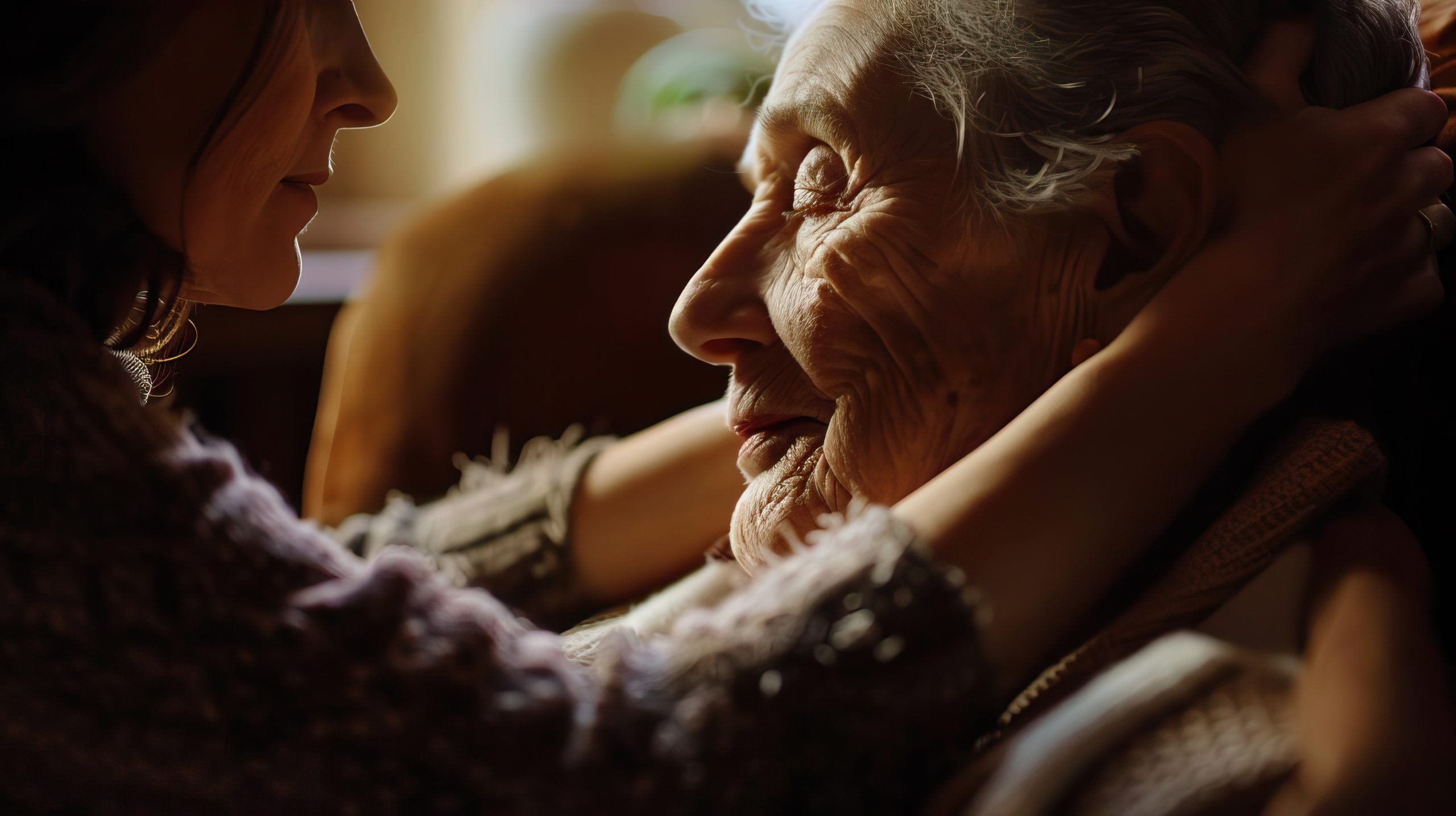
Hospice care with Wings of Hope Hospice and Palliative Care provides a compassionate approach focused on comfort, dignity, and support for those in the final stages of life. Unlike traditional medical care that seeks to cure or extend life, Wings of Hope prioritizes easing pain, managing symptoms, and enhancing the quality of life. Our team, including healthcare professionals, counselors, and volunteers, works closely with patients and their families, offering a holistic approach that addresses physical, emotional, and spiritual needs in a setting that fosters peace and respect.
Deciding to begin hospice care is deeply personal and can be challenging. It’s essential to make an informed choice that honors the wishes and well-being of the patient while providing families with the support they need. Knowing who should be involved in this decision and the factors to consider can ease this transition and provide clarity. By understanding these elements, we aim to empower families to approach this choice confidently, ensuring each step forward with Wings of Hope is filled with compassion and understanding.
Understanding Hospice Care and Its Purpose
Hospice care is a specialized service that focuses on comfort, quality of life, and holistic support for individuals facing a terminal illness. Unlike traditional medical treatment, which often aims to cure or extend life, hospice care is centered on providing relief from pain and other distressing symptoms, helping patients maintain dignity and comfort as they approach the end of life. This comfort-focused approach is grounded in compassion, meeting patients where they are, and aligning care with their specific needs and values.
The main goals of hospice care include managing pain effectively, addressing emotional and spiritual needs, and enhancing overall quality of life. Pain management is a top priority, with hospice teams working to alleviate discomfort through tailored medication plans, therapies, and alternative approaches that ensure each patient is as comfortable as possible. Beyond physical care, hospice provides emotional support to both patients and their families, recognizing that facing the end of life often brings complex emotions, from fear and anxiety to sadness and grief. Hospice care also extends to spiritual support, offering patients and their loved ones the option of counseling or guidance from chaplains or spiritual advisors to bring peace and closure.
Starting hospice care early can be particularly beneficial, as it allows patients and families to embrace the support available through hospice fully. Early admission means patients have more time to benefit from the comfort measures and holistic care hospice provides, making their remaining time as meaningful and pain-free as possible. Families also gain valuable time to process the journey ahead, ask questions, and participate actively in care decisions, fostering a deeper connection with the hospice team. This early integration can reduce stress for everyone involved, allowing patients and loved ones to focus on quality time and emotional well-being.
Key Factors in Deciding to Begin Hospice Care
Deciding to begin hospice care is a significant and personal choice influenced by several key factors. Understanding these factors can help patients and families make an informed, compassionate decision that aligns with the patient’s values and wishes.
Medical Condition and Prognosis
The patient’s medical condition and prognosis are central factors in beginning hospice care. Hospice care is typically recommended when a patient has been diagnosed with a terminal illness and has a life expectancy of six months or less if the illness runs its normal course. This decision often involves close consultation with healthcare providers who understand the patient’s medical history and can provide insight into the expected progression of their condition. The healthcare provider’s assessment helps families understand whether continuing aggressive treatments align with the patient’s comfort and quality of life or if hospice’s comfort-focused care may be more appropriate.
Quality of Life Considerations
Quality of life needs to be considered when deciding to start hospice care. Hospice shifts the focus from curing the illness to relieving symptoms and enhancing comfort. For patients facing constant pain, fatigue, or complex symptoms, ongoing treatments may add to their discomfort without significantly improving their condition. Hospice care prioritizes symptom management and comfort, allowing patients to maintain greater dignity and well-being.
Patient’s Wishes and Preferences
When considering hospice, respecting the patient’s wishes, values, and beliefs is essential. Some individuals prioritize comfort and quality time with loved ones, preferring to avoid intensive treatments in favor of a more peaceful experience. For others, cultural or spiritual beliefs may influence how they view end-of-life care. Open discussions with the patient about their preferences ensure that the decision aligns with what matters most to them, honoring their autonomy in a compassionate way.
Timing and Early Hospice Benefits
Timing can greatly impact the benefits of hospice care. Starting hospice from the moment it is recommended, or when a patient opts out of further treatments, preferring to maximize their quality of life, is the perfect time to begin hospice care. It will allow patients and families to maximize the support available, including pain management, emotional counseling, and spiritual support. Early admission provides patients with ample time to adjust to hospice. It allows families to prepare for the journey ahead, enabling them to focus on shared moments of peace and comfort rather than urgent medical decisions.
Who Should Be Involved in the Decision?

Choosing to begin hospice care is a deeply personal decision that involves input from multiple people, all of whom play a unique role in supporting the patient’s wishes and well-being. Understanding who should be involved in this decision can ensure it reflects the patient’s needs, values, and preferences.
The Patient (When Possible)
Whenever possible, the patient should be at the center of the decision to begin hospice care. Patient autonomy is essential, as it allows individuals to express their own values, preferences, and goals for end-of-life care. Open discussions with family and healthcare providers can help patients clarify what is most important, such as comfort, quality time with loved ones, or spiritual peace. These discussions allow patients to voice their wishes clearly, creating a care plan that respects their choices and ensures dignity.
Healthcare Providers
Healthcare providers, including doctors, nurses, and hospice consultants, play a vital role in guiding the decision to begin hospice care. They bring expertise in assessing the patient’s medical condition, discussing the likely progression of their illness, and presenting the options available. Physicians and professionals can explain how hospice care can support the patient’s goals and relieve distressing symptoms. Their insights help families understand the practical aspects of hospice care and how it aligns with the patient’s medical needs and comfort.
Family Members and Loved Ones
Family members and loved ones are often closely involved in hospice decision-making, offering emotional support and helping patients navigate options. Family members assist in advocating for the patient’s wishes, especially if the patient cannot communicate or make decisions independently. By discussing preferences in advance, families can ensure that the decision aligns with the patient’s values, honoring their wishes in every care step. Family support provides comfort as loved ones share the journey, offering strength and understanding.
Legal Representatives
When the patient is incapacitated and unable to communicate their wishes, legal representatives such as healthcare proxies, powers of attorney, or legal guardians may need to make the decision. These representatives are typically chosen by the patient or appointed legally to act in the patient’s best interests. They are tasked with making decisions that reflect the patient’s previously stated preferences or prioritizing their comfort and dignity in the absence of those. Clearly defined roles can help families make decisions confidently and respectfully, ensuring the patient’s voice is honored even if they cannot speak for themselves.
Communicating About the Decision to Begin Hospice

Open conversations about end-of-life preferences and values are essential in hospice decision-making. These discussions help family members understand the patient’s wishes, fostering a shared commitment to honoring them. By encouraging family members to discuss these preferences early, patients can express what matters most: comfort, spiritual peace, or spending time with loved ones. This open dialogue helps to prevent misunderstandings, ensuring that everyone involved is on the same page and ready to support the patient’s journey in a unified way.
When differing opinions arise, finding consensus among family members can be challenging but is achievable with a focus on the patient’s needs. One helpful step is prioritizing the patient’s previously stated wishes, reminding everyone that the decision should reflect what the patient wants. It may also help to bring in a neutral party, like a hospice counselor or social worker, to facilitate discussions and provide guidance. By maintaining a patient-centered approach, families can navigate differing viewpoints with respect and compassion, ultimately reaching decisions that align with the patient’s values and bring peace to all involved. Families can provide the supportive, unified care their loved one deserves through open communication and a shared commitment.
Challenges in the Decision-Making Process
Emotional Barriers
The decision to begin hospice care with Wings of Hope Hospice and Palliative Care can bring up complex emotions for both patients and families, as feelings of guilt, fear, or denial often accompany this choice. Many family members struggle with the thought that choosing hospice may seem like “giving up” when, in reality, it’s a compassionate choice that prioritizes comfort, quality, and dignity. At Wings of Hope, we understand these emotional barriers and provide supportive counseling and compassionate guidance to help families recognize and address these feelings, fostering a sense of peace and understanding in a challenging time.
Balancing Hope and Acceptance
Balancing hope and acceptance is a delicate part of the decision-making process. While hospice care focuses on comfort rather than cure, it doesn’t mean giving up hope entirely. Families can still hope for meaningful, pain-free moments and a peaceful transition. Wings of Hope emphasizes quality of life, relieving distressing symptoms so patients can continue to enjoy valuable time with loved ones. By shifting the focus to enhancing each day’s quality, families can find comfort in knowing they are doing what is best for their loved ones.
Cultural or Religious Considerations
Cultural or religious beliefs also play a significant role in the decision to begin hospice. These beliefs can influence when and if hospice care is accepted, and Wings of Hope respects and honors each patient’s and family’s cultural or spiritual values. We encourage families to communicate openly about their cultural or religious considerations so our team can provide care that aligns with these values. Chaplains and spiritual advisors are available to offer support, helping families navigate these complex, personal beliefs with respect and compassion.
Guidance from Hospice Professionals
Consulting with Hospice Providers Early
At Wings of Hope Hospice and Palliative Care, reaching out to our hospice professionals early can make a profound difference in the transition to end-of-life care. Early consultations provide families with clarity and allow them to explore the options and benefits of hospice in a supportive environment. Our team is here to guide families through the decision-making process, offering a compassionate, expert perspective that can alleviate uncertainties and help families make informed choices that prioritize comfort and quality of life.
Educational Resources
Wings of Hope offers many educational resources to help families understand every aspect of hospice care. Our professionals are available to explain the various stages of care, what to expect, and the specific services we provide to support both patients and loved ones. We also offer information on pain management, symptom relief, and holistic support tailored to individual needs. This knowledge empowers families to feel more confident in their decisions and to approach the hospice journey with a clear understanding of how each aspect of care contributes to their loved one’s well-being.
Support Services for Patients and Families
Wings of Hope extends a range of support services to ensure patients and families feel cared for in every sense. Our offerings include counseling for emotional support, spiritual guidance for those seeking peace and comfort, and grief resources to assist families before, during, and after the hospice journey. We provide group support, one-on-one counseling, and access to grief support groups that help loved ones find solace. Wings of Hope supports a comprehensive approach to care by addressing physical and emotional needs, ensuring that families feel embraced and uplifted at every step. Our commitment is to walk alongside each family, offering the resources and care they need to navigate this journey with dignity and compassion.
Making the Decision

Deciding to begin hospice care is a collaborative process involving the patient, family members, healthcare providers, and, when needed, legal representatives. At Wings of Hope Hospice and Palliative Care, we believe that each person’s voice is essential, with patient autonomy taking priority whenever possible. Respecting the patient’s wishes is at the heart of compassionate hospice care, allowing individuals to have a meaningful say in how they wish to approach their final chapter. Family members play an equally vital role, offering emotional support, advocating for their loved one’s wishes, and helping ensure each decision reflects what truly matters to the patient.
Hospice care with Wings of Hope provides families with a compassionate choice, focusing on comfort, dignity, and peace rather than curative treatments. It allows patients to spend their remaining time in a comforting environment, free from aggressive medical interventions’ physical and emotional strain. We encourage families to consider hospice an option that brings relief and fosters meaningful connections during this time. With Wings of Hope, patients and their families receive unwavering support, empowering them to find peace, comfort, and dignity at every step.





